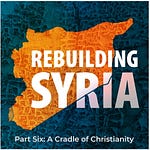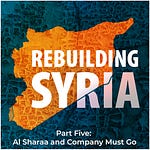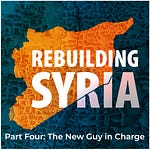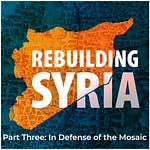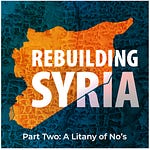This episode was recorded on September 19th, 2025.
After fourteen years of war, Syrians are pushing for a future that is post-Assad, post-Al Sharaa, post-sectarian—and definitively post-autocracy. In this episode, we lay out a distinctly Syrian path forward: a United Syrian Federation built on federalism, localism, and the right of historic communities to shape their own destinies free of coercion and domination.
The United Syrian Federation explores one of the most contentious and consequential proposals in Syria’s reconstruction debate—federalism. While interim president Ahmed al-Sharaa champions centralization and national unity under a single authority, Alawite, Druze, and Kurdish communities, alongside regional actors, push for decentralized governance that recognizes Syria’s mosaic. The tension between these visions isn’t merely political theater; it’s a fundamental reckoning with Syria’s identity, its future, and whether repeating the mistakes of the Assad era can truly be avoided.
United Syrian Federation makes the case for a federal Syria in language that is direct and decisive—what it is, what it isn’t, and why a robust but accountable central government can coexist with genuine regional self-rule. We consider the three regions demanding broad autonomy (Rojava; the coastal provinces of Latakia and Tartous; and the province of Sweida), the role of Syria’s great metropolitan “spine” (Aleppo–Hama–Homs–Damascus), and why centralized strongman politics have already proven catastrophic.
Pointed, unsentimental, forward-looking. If you care about Syria’s future—and the difference between unity and uniformity—this episode is for you.
Polycultural Institute is the Think-and-Create Tank of Chicago’s Silk Road Cultural Center. We generate art and ideas that promote polyculturalism and connect people, cultures, and communities.
Polyculturalism is the theory that cultures continuously evolve and transform through dynamic interchange. It assumes that cultures are fluid and flexible, not static and fixed, and that as cultures interact, they redefine themselves.
Silk Road Cultural Center is a Chicago-based interdisciplinary arts organization rooted in the modern communities of the historic Silk Roads, including our diaspora communities. We embrace the arts as a catalyst for connecting people, places, histories, and futures.







